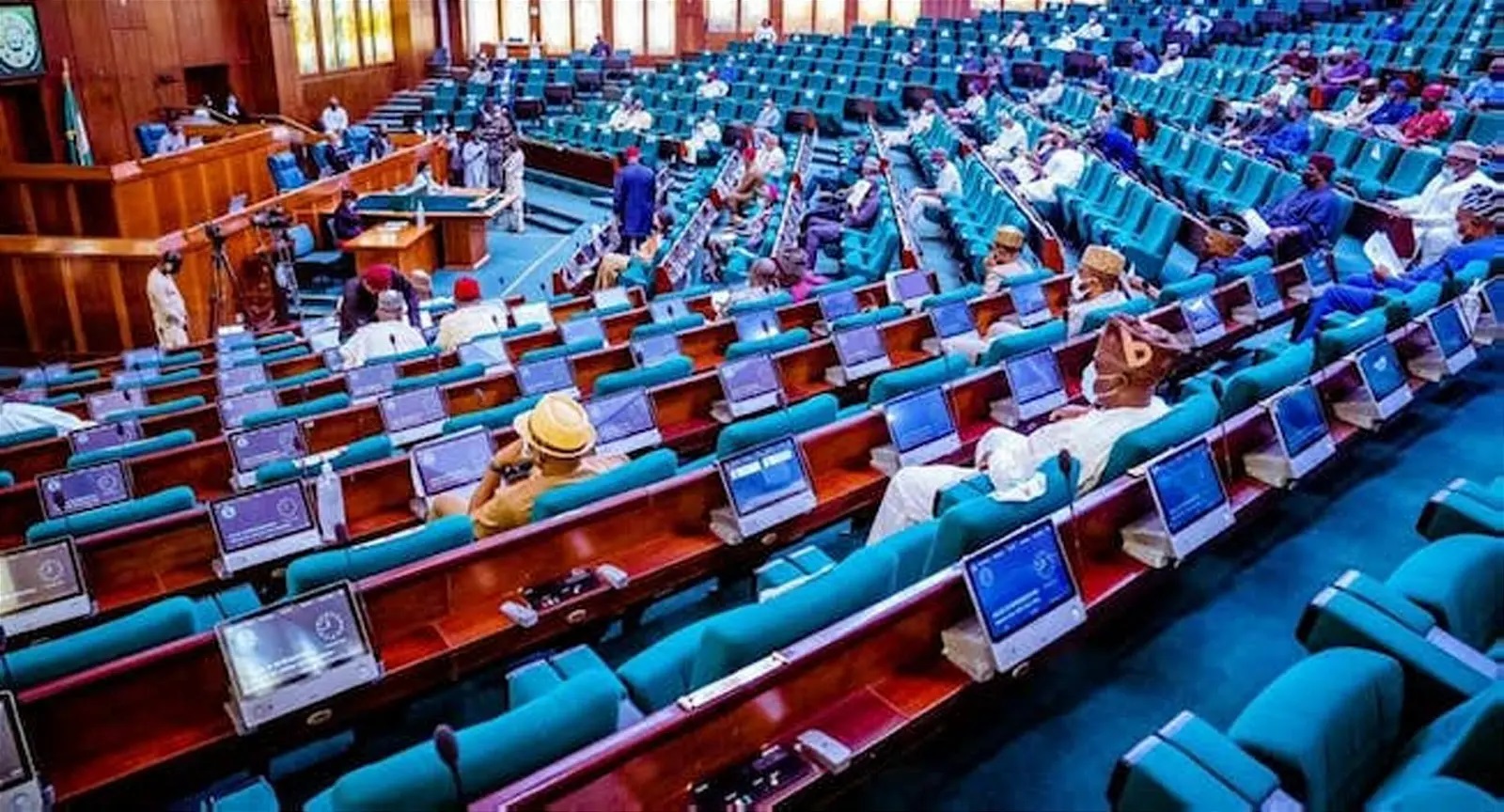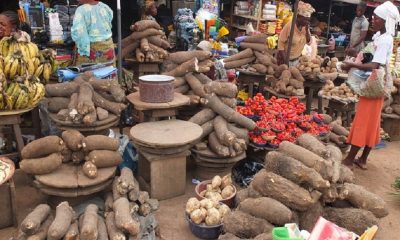Feature/OPED
The 10th NASS, PIA as a First Line of Conflict

By Jerome-Mario Chijioke Utomi
Even when it is obvious that, as humans, it is always convenient to forget and uncomfortable to remember, one invaluable asset the outgone 9th National Assembly left behind that will be too difficult to forget by Nigerians, particularly the people of the Niger Delta region, South-South geopolitical zone of the country is the 2021 passage of the Petroleum Industry Bill, after over 17 years of back and forth movement, and its subsequent signing to law by former President Muhammadu Buhari.
Aside from being the most audacious attempts to overhaul the petroleum sector in Nigeria, stakeholders believed that If properly and vigorously implemented, the PIA could represent the gold standard of natural resource management, with clear and separate roles for the subsectors of the industry; the existence of a commercially-oriented and profit-driven national petroleum company; the codification of transparency, good governance, and accountability in the administration of the petroleum resources of Nigeria; the economic and social development of host communities; environmental remediation; and a business environment conducive for oil and gas operations to thrive in the country.
Further amplifying the celebration of PIA advent is the awareness that the people of the Niger Delta region of Nigeria have been cheated for a protracted period in ways that rendered restitution a costly process; inferior education, poor housing, unemployment, poor healthcare facilities and very recently recession. These are the bitter tablets of oppression the people have taken for the period under review. Now, this neglect has accumulated interest, and its cost to this nation has become substantial in financial and human terms.
However, like every invention, which usually comes with its opportunities and challenges, even so, has PIA which provided two regulatory agencies, the Nigerian Upstream Petroleum Regulatory Commission (NUPRC) and the Nigerian Midstream and Downstream Petroleum Regulatory Authority (NMDPRA), among other responsibilities, provide technical and commercial regulation of petroleum operations in their respective sectors, contrary to expectations become the first and fundamental line of conflict between the operators and the host communities-leading to a renewed call by host communities on the Federal Government to give them full control of their resources and then they can developmentally change the lives of their people.
Beginning with the frosty relationship between the operators and host communities, among many examples, the recent ultimatum/threat by the oil-rich community of Tsekelewu (Polobubo) in Warri North Local Government Area of Delta State to shut down ongoing exploration activities of Conoil Producing Limited, if the company failed to reach a definite agreement with the community on the implementation of Chapter 3 of the Petroleum Industry Act (PIA) for the Tsekelewu bloc of communities, supports this assertion.
Entitled ‘Fourteen (14) Days Ultimatum to Implement Chapter 3 of 2021 Petroleum Industry Act (PIA) in Tsekelewu (Polobubo) Host Community and Bloc of Communities by Conoil Producing Limited at OML 103’, the petition/ultimatum, Dated December 30, 2022, signed by the President-General of the Tsekelewu (Polobubo) Development Association, Dr Bright Abulu and the spokesman of the association, Mr Christmas Ukagha and addressed to the Managing Director/Chief Executive Officer of Conoil Producing Limited, among other things, lamented that they adopted the option due to the seemingly snobbish attitude of the management of Conoil Producing as the company’s management had refused to honour letters asking for a meeting with the TCDA on the issue of the PIA implementation.
Essentially, while the people of the Tsekelewu (Polobubo) Host Community continue to wait for what becomes the outcome of their ultimatum, there is, indeed, greater evidence that points to the fact that the underlying premise behind PIA enactment has been defeated. There is equal reason for concern that what is currently happening between Oil Companies and their host communities may no longer be the first half of a reoccurring circle but, rather, the beginning of something negatively new and different.
According to a commentator, the challenge of ambiguity, interpretation and imprecision in the law is so ‘profound’. For example, it is unclear whether host community development trust obligations are additional to existing community levies (such as the Niger Delta development levy) or will be an aggregation of those levies. Similarly, the law is silent on the definition of “frontier basin” and host community, instead deferring to the NUPRC on the definition of the frontier basin and to settlors or license holders on the definition of “host community.” These definitions are not neutral to revenue; they have revenue implications. This lack of clarity creates uncertainty and even possible disputes, especially if relevant parties define them differently.
On Capacity building, the referenced commenter captures it this way; this law is complex and complicated. While capacity in the oil and gas sector has been built over the years, the new legal provisions and fiscal framework will need new capacities to succeed. This challenge will be particularly acute in the new regulatory institutions; in the understanding, interpretation, and application of the law; and in the management of the funds, including the Host Community Development Trust Funds (HCDTF).
In my view, another major area of ‘interest ‘’ that the 10th NASS must watch as it calls for urgent amendment is the fiscal framework of PIA which highlights penalties for gas flaring arising from midstream operations. It stated that revenues from these penalties would accrue to the Midstream and Downstream Infrastructure Fund and would be used to finance midstream and downstream infrastructure investment.
Aside from the fact that the law was more interested in income generation for the government through payment of fines/penalties by the operators and has no protection for the host communities, who are the real victims of pollution arising from gas flaring, another major flaw inherent in the provision is that a tour by boat of creeks and coastal communities of Warri South West and Warri North Local Government Areas of Delta state will amply reveal that the much-anticipated end in sight of gas flaring is actually not in sight. In the same manner, a journey by road from Warri via Eku-Abraka to Agbor, and another road trip from Warri through Ughelli down to Ogwuashi Ukwu in Aniocha Local Government of the state, shows an environment where people cannot properly breathe as it is littered by gas flaring points.
In simple language, the operators appear more comfortable with the payment of fines/penalties arising from flared gases than taking practical steps to end the ‘practice’.
To a large extent, the above confirms as true the recently published report, which among other concerns, noted that Nigeria has about 139 gas flare locations spread across the Niger Delta both in onshore and offshore oil fields where gas which constitutes about 11 per cent of the total gas produced are flared. Apart from the health implication of flared gases on humanity, their adverse impact on the nation’s economy is equally weighty. For instance, a parallel report published a while ago underlined that about 888 million standard cubic feet of gas were flared daily in 2017.
The flared gas, it added, was sufficient to light up Africa, or sub-Saharan Africa, generate 2.5 gigawatts (Gw) of power or produce 50 million barrels of oil equivalent (boe) or produce 600,000 metric tonnes of liquefied petroleum gas (LPG) per year, produce 22 million tonnes of carbon dioxide (CO2), feed two-three liquefied natural gas (LNG) trains, generate 300,000 jobs, able to attract $3.5 billion investment into Nigeria and has $350 million carbon credit value’. This is an illustrative pointer as to why the nation economically gropes and stumbles.
Looking at the enormity of the health and economic losses inherent in gas flaring, one may be tempted to ask what set the stage for gas flaring in Nigeria. The politics that keep it going, and why it flourishes unabated?
Banking on what experts are saying, the major reason for the flaring of gasses is that when crude oil is extracted from onshore and offshore oil wells, it brings with it raw natural gas to the surface and where natural gas transportation, pipelines, and infrastructure are lacking, like in the case of Nigeria, this gas is instead burned off or flared as a waste product as this is the cheapest option. This has been going on since the 1950s when crude oil was first discovered in commercial quantities in Nigeria.
To make the PIA rewarding and meet the changing needs of all the parties involved, Senator Godswill Akpabio’s led 10th National Assembly must amend the existing legislation. It has to be simple and without any form of ambiguity in its provisions. Take as an illustration; the NASS must not fail to remember that the Host Community Development Trust Fund (HCDTF) is to foster sustainable prosperity, provide direct social and economic benefits from petroleum to host communities, and enhance peaceful and harmonious coexistence between licensees or lessees and host communities. The 10th NASS must do more to strengthen these provisions.
Most importantly, it has recently become evident that every normal human being from the Niger Delta is against the 3% allocation to the host communities. They are in support of the community’s demand of 10%.
While the above state of affairs has tactically exposed the fundamental flaw in the PIA, which was at a time celebrated, the truth is that if the members of the 10th NASS and, of course, President Bola Tinubu-led federal government do nothing to amend this legislation, it will translate to failing future generations of Niger Deltans by leaving them an Act that will more diminish and devastate their region.
The NASS should also put these concerns into consideration.
Utomi Jerome-Mario is the Programme Coordinator (Media and Policy) for Social and Economic Justice Advocacy (SEJA), Lagos. He can be reached via je*********@***oo.com/08032725374
Feature/OPED
Revived Argungu International Fishing Festival Shines as Access Bank Backs Culture, Tourism Growth

The successful hosting of the 2026 Argungu International Fishing Festival has spotlighted the growing impact of strategic public-private partnerships, with Access Bank and Kebbi State jointly reinforcing efforts to promote cultural heritage, tourism development, and local economic growth following the globally attended celebration in Argungu.
At the grand finale, Special Guest of Honour, Mr Bola Tinubu, praised the festival’s enduring national significance, describing it as a powerful expression of unity, resilience, and peaceful coexistence.
“This festival represents a remarkable history and remains a powerful symbol of unity, resilience, and peaceful coexistence among Nigerians. It reflects the richness of our culture, the strength of our traditions, and the opportunities that lie in harnessing our natural resources for national development. The organisation, security arrangements, and outlook demonstrate what is possible when leadership is purposeful and inclusive.”
State authorities noted that renewed institutional backing has strengthened the festival’s global appeal and positioned it once again as a major tourism and cultural platform capable of attracting international visitors and investors.
“Argungu has always been an iconic international event that drew visitors from across the world. With renewed partnerships and stronger institutional support, we are confident it will return to that global stage and expand opportunities for our people through tourism, culture, and enterprise.”
Speaking on behalf of Access Bank, Executive Director, Commercial Banking Division, Hadiza Ambursa, emphasised the institution’s long-standing commitment to supporting initiatives that preserve heritage and create economic opportunities.
“We actively support cultural development through initiatives like this festival and collaborations such as our partnership with the National Theatre to promote Nigerian arts and heritage. Across states, especially within the public sector space where we do quite a lot, we work with governments on priorities that matter to them. Tourism holds enormous potential, and while we have supported several hotels with expansion financing, we remain open to working with partners interested in developing the sector further.”
Reports from the News Agency of Nigeria indicated that more than 50,000 fishermen entered the historic Matan Fada River during the competition. The overall winner, Abubakar Usman from Maiyama Local Government Area, secured victory with a 59-kilogram catch, earning vehicles donated by Sokoto State and a cash prize. Other top contestants from Argungu and Jega also received vehicles, motorcycles and monetary rewards, including sponsorship support from WACOT Rice Limited.
Recognised by UNESCO as an Intangible Cultural Heritage of Humanity, the festival blends traditional fishing contests with boat regattas, durbar processions, performances, and international competitions, drawing visitors from across Nigeria and beyond.
With the 2026 edition concluded successfully, stakeholders say the strengthened collaboration between government and private-sector partners signals a renewed era for Argungu as a flagship cultural tourism destination capable of driving inclusive growth, preserving tradition, and projecting Nigeria’s heritage on the world stage.
Feature/OPED
$214Bn Missing, Institutions Silent: Is Accountability Dead in Nigeria?

By Blaise Udunze
Between 2010 and 2026, a staggering $214 billion, approximately N300 trillion in public funds, has been reported as missing, unaccounted for, diverted, unrecovered, irregularly spent, or trapped in non-transparent fiscal structures across Nigeria’s public institutions.
That figure is not speculative but a conservative estimate of unaccounted funds. It is drawn from audit reports, legislative probes, civil society litigation, executive directives, and investigative findings spanning more than a decade. If it is to go by the accurate figure, the true national loss is likely higher but difficult to quantify precisely due to data gaps, overlapping figures, and incomplete audits.
The challenge is that in many of the most prominent cases, prosecutions have stalled, hearings have dragged without resolution, investigations have gone cold, and no defining jail terms have etched accountability into Nigeria’s institutional memory. The irony is that the number is historic, the silence is louder. And the economic damage is cumulative.
The pattern stretches from the oil sector to social investment programmes, from the Nigeria Central Bank of Nigeria (CBN) interventions to ministry-level expenditures. In 2014, between $10.8 billion and $20 billion in unremitted oil revenues linked to the Nigerian National Petroleum Corporation triggered national outrage. Under the then CBN governor, Lamido Sanusi, who warned that persistent oil revenue leakages were making exchange rate stability “extremely difficult.” He cautioned that without full remittances, the alternative would be currency devaluation and financial instability. This concern spans the 2010 to 2013 oil revenue period. That warning proved prophetic.
This is because, years later, the lack of transparency in the oil industry did not disappear, but rather it festered like cancer. It further led to the elongated audit queries, which have continued to trail the Nigerian National Petroleum Company Limited, including unremitted revenues, questioned deductions, and management fee structures under the Petroleum Industry Act. With an extraordinary move aimed at blocking revenue leakages at source, President Bola Ahmed Tinubu has recently issued an Executive Order suspending certain deductions and directing direct remittance of taxes, royalties, and profit oil into the Federation Account, which involves the reassessment of NNPC’s 30 per cent management fee and 30 per cent frontier exploration deduction under the Petroleum Industry Act.
Such presidential intervention underscores the scale of concern, which means that Nigeria cannot afford a structural lack of transparency in its most strategic revenue sector. But oil is only one chapter.
The Central Bank of Nigeria has faced some of the most far-reaching audit alarms in recent years. In suit number FHC/ABJ/CS/250/2026, the Socio-Economic Rights and Accountability Project (SERAP) is asking the Federal High Court to compel the CBN to account for N3 trillion in allegedly missing or diverted public funds. The Auditor-General’s 2025 report cited failures to remit over N1.44 trillion in operating surplus to the Consolidated Revenue Fund, over N629 billion paid to “unknown beneficiaries” under the Anchor Borrowers’ Programme, and more than N784 billion in overdue, unrecovered intervention loans.
There were also N125 billion in questioned intervention expenditures, irregular contract variations exceeding N9 billion, and procurement gaps running into hundreds of billions. The Auditor-General repeatedly recommended recovery and remittance. No date has been fixed for the hearing. Meanwhile, Nigeria continues to borrow.
Elsewhere, the House of Representatives has launched a probe into over N30 billion recovered during investigations into the National Social Investment Programme Agency (NSIPA). The funds, reportedly frozen during investigation, have not been remitted back into the Treasury Single Account, stalling poverty-alleviation schemes like TraderMoni and FarmerMoni. Millions of vulnerable Nigerians remain exposed while lawmakers search for money already “recovered.” The irony is staggering as funds are found, but programmes remain frozen.
A top discovery recently that put the nation on red alert was made by the Senate committee, which claimed to have found N210 trillion in financial irregularities in NNPC accounts between 2017 and 2023, including unaccounted receivables and accrued expenses. A critical concern is that, as of early 2026, this has sparked commentary but no clear prosecutions.
Only recently, in the power sector, SERAP has urged the President to probe alleged missing or unaccounted N128 billion at the Federal Ministry of Power and the Nigerian Bulk Electricity Trading Plc. Of concern is that despite the enormous funds channelled in this sector, Nigeria’s chronic electricity instability persists, even as billions meant to stabilise the grid face audit scrutiny.
Across MDAs, audit reports between 2017 and 2022 flagged trillions in unsupported expenditures, unremitted taxes, unauthorised payments, and statutory liabilities never recovered. These sums are dizzying and are also alarming; N300 billion here, N149 billion there, N3.403 trillion across agencies, N30 trillion-plus Treasury discrepancies raised at the Senate level.
Individually, they shock. Collectively, they define a structural pattern. And patterns shape economies.
Nigeria operates with structural fiscal deficits and also lives with them routinely and comfortably. Expenditure persistently exceeds revenue. When public funds disappear, fail to be remitted, or are trapped outside constitutional channels, the deficit widens. The government must borrow to fill gaps created not only by low revenue, but by revenue leakage.
Debt servicing now consumes a disproportionate share of federal revenue. Borrowing meant for capital projects increasingly finances recurrent obligations. The country shifts from borrowing to build to borrowing to survive. Every missing naira compounds tomorrow’s liability.
The Treasury Single Account (TSA) was designed to plug such leakages. It consolidated government revenues under Section 80 of the Constitution into a unified framework. International financial institutions commended it as a landmark reform. Yet even today, the Minister of Finance, Wale Edun, has admitted that substantial government funds remain outside the TSA and outside the CBN’s consolidated visibility. Until August 1, 2024, he revealed, the federal government could not fully see its own balance sheet at the apex bank. That admission should alarm any serious economy.
Fiscal lack of transparency constrains planning. It undermines monetary coordination. It weakens debt sustainability projections. It distorts policy responses. And when systems are in flux, money vanishes more easily.
Changing or weakening the TSA in such an environment would be catastrophic. Transitions create windows of vulnerability. Old accounts close. New accounts open. Reconciliation’s lag. Ghost contractors reappear. Double payments slip through.
Albeit, the government must learn to tread with caution as Nigeria’s institutional bandwidth is already strained by simultaneous tax reforms, exchange-rate adjustments, subsidy removal, and fiscal restructuring. One truth that cannot be argued is that layering additional structural upheaval onto fragile systems risks revenue loss that the country cannot afford. Investors are watching.
Credit markets evaluate not just numbers but institutional consistency. A nation that abandons or weakens its most credible fiscal reform sends a destabilising signal. Stability lowers borrowing costs. Institutional drift raises them. But beyond markets lies the human cost.
N300 trillion represents roads not built, power plants not completed, irrigation systems not funded, schools not modernised, and hospitals not equipped. It represents jobs not created and industries not catalysed. It represents stalled productivity and deferred growth.
When intervention loans remain unrecovered, agricultural output suffers. When power sector funds are unaccounted for, electricity remains unstable. When social investment funds are frozen, poverty deepens.
Inflation then compounds the pain. Revenue gaps push borrowing. Borrowing pressures, interest rates and by extension, liquidity misalignment fuel price instability. Citizens pay through higher food costs, transport fares, and rent. The poor pay first. The middle class erodes quietly.
Perhaps most corrosive is the trust deficit. When audit queries fade without visible accountability, tax morale weakens. Compliance declines. Cynicism hardens. A nation cannot modernise where trust in fiscal integrity is fragile.
Section 15(5) of the Constitution requires the abolition of corrupt practices. Financial Regulations mandate a surcharge and referral to anti-corruption agencies where public officers fail to account for funds. The Fiscal Responsibility Act empowers citizens to enforce compliance to ensure that government officials follow fiscal rules. But enforcement defines seriousness.
Nigeria’s problem is not a lack of audit findings. It is the distance between findings and finality.
Nations do not collapse overnight due to a lack of funds. They drift. Infrastructure decays incrementally. Debt rises gradually. Growth slows subtly. Confidence erodes quietly. Then one day, stagnation feels permanent. $214 billion (N300 trillion), sixteen years of recurring audit alarms. Few conclusive accountability outcomes are proportionate to the scale. Truly, the consequences have been less strong. For the same reason, the country witnessed President Tinubu nominating ex-NIA boss Ayodele Oke as ambassador despite a $43 million loot in an Ikoyi apartment.
See the research breakdown of some of the audit figures that reveal staggering sums as enumerated above:
– $10.8 billion and separately $20 billion in unaccounted oil revenues at the NNPC in 2014
– $1.1 billion controversial Malabu Oil and Gas oil deal in 2015
– $2.2 billion arms procurement irregularities in 2015
– N3.4 billion from IMF COVID-19 financing flagged in a 2020 audit.
– N149.36 billion, N37.2 billion, and multiple irregular MDA expenditures in 2020 alone.
– N300 billion cited in public audit concerns in 2017.
– N210 trillion in financial irregularities uncovered, N103 trillion in ‘accrued expenses’, and another N107 trillion in unaccounted ‘receivables’ (2017 -2023).
– N57 billion Ministry of Humanitarian Affairs – (2021)
– N3 trillion and N1.44 trillion flagged in 2022 audit issues involving the Central Bank of Nigeria.
– Nearly N630 billion under the Anchor Borrowers Programme is reportedly unrecovered.
– N784 billion in overdue intervention loans flagged.
– Over N3.403 trillion unaccounted for across federal MDAs between 2019 and 2021.
– Roughly 30 trillion+ in Treasury Single Account and Consolidated Revenue Fund discrepancies raised at the Senate level.
– N500 billion in unremitted oil revenues between 2019 and 2024.
– N80 billion tied to alleged fictitious contracts in the Accountant-General’s office.
– N69.9 billion in uncollected statutory tax liabilities.
– Billions more in unauthorised or undocumented expenditures across ministries.
The institutions differ. The years differ. The audit language differs. The pattern does not.
Nigeria’s economic future will not be determined solely by how much oil it produces, how many reforms it announces, or how many executive orders it signs. It will be determined by whether every naira earned enters the Federation Account transparently, whether every intervention loan is tracked and recovered, whether every surplus is remitted constitutionally, and whether every diversion carries consequences. Revenue generation matters. Revenue protection is destiny. Because when government funds go missing, nations do not stand still. They move backwards.
Blaise, a journalist and PR professional, writes from Lagos and can be reached via: bl***********@***il.com
Feature/OPED
The Hidden Workforce of the 2026 Access Bank Lagos City Marathon

When the final runner crossed the finish line at the 11th edition of the Access Bank Lagos City Marathon (ABLCM), the applause began to fade. But for hundreds of workers across Lagos, the real work was just beginning.
Major highways had been closed to facilitate the event. Tens of thousands of runners moved through the city in a coordinated surge of athletic endurance. Thousands of bottles of water and energy drinks were distributed, alongside sachets containing essential medical supplies and medication. The race route itself was meticulously prepared, lined with banners, barricades, medical tents and precision timing systems that ensured safety, organisation and accurate performance tracking from start to finish.
What followed was the part that a few cameras lingered on, yet it remains one of the clearest indicators of institutional progress.
Within minutes of the race conclusion, coordinated sanitation teams fanned out across the marathon corridor. Their work went beyond sweeping. Waste was systematically sorted. Plastic bottles were separated from general refuse. Sachets were gathered in bulk. Collection trucks moved along predefined routes, ensuring rapid evacuation of waste. Temporary race infrastructure was dismantled with quiet precision.
In a megacity like Lagos, speed is a necessity. Urban momentum cannot pause for long. The ability to restore order quickly after an event of this magnitude reflects operational discipline across interconnected systems, municipal authorities, environmental agencies, private waste management partners and event coordinators.
Globally, large-scale sporting events are no longer evaluated solely by participation numbers or prize purses. Sustainability has emerged as a defining metric. Environmental responsiveness is now a core measure of credibility. Cities seeking tourism growth, foreign investment and international partnerships must demonstrate that scale does not compromise responsibility. The 2026 marathon provided a compelling case study in this evolution.
The clean-up operation itself generated meaningful economic activity. Temporary employment opportunities emerged for sanitation workers and logistics personnel. Recycling partners engaged in material recovery, reinforcing circular economy value chains. What was once viewed as routine waste disposal has evolved into a structured ecosystem of environmental services, a sector of increasing importance in modern urban economies.
This level of sustainability was the result of deliberate planning. Effective post-event recovery requires route mapping, waste volume projections, coordination between sponsors such as Access Bank Plc and municipal bodies, contingency planning for congestion points and clear communication protocols.
Each edition of the marathon has built on lessons from the last. International participation has expanded. Accreditation standards have strengthened. Media visibility has grown. Most importantly, environmental management has become embedded in the marathon’s operational framework rather than treated as an afterthought.
Progress rarely arrives in dramatic leaps, it advances through incremental improvements, refined systems and institutional learning. Just as elite runners close performance gaps through disciplined training, cities strengthen their global standing through consistent operational excellence.
The 2026 marathon, therefore, tells a story that extends far beyond athletic achievement. It is a story of coordination, sustainability as strategy rather than slogan, and the often unseen workforce, sanitation workers, planners, volunteers, security officials and environmental partners, whose discipline sustains the spectacle.
Because in the end, global cities are judged by how well they host and how responsibly they restore. On the marathon day in Lagos, it was the runners who demonstrated endurance and the systems, and the people behind them, who ensured that when the cheering stopped, the city kept moving.
-

 Feature/OPED6 years ago
Feature/OPED6 years agoDavos was Different this year
-
Travel/Tourism10 years ago
Lagos Seals Western Lodge Hotel In Ikorodu
-

 Showbiz3 years ago
Showbiz3 years agoEstranged Lover Releases Videos of Empress Njamah Bathing
-

 Banking8 years ago
Banking8 years agoSort Codes of GTBank Branches in Nigeria
-

 Economy3 years ago
Economy3 years agoSubsidy Removal: CNG at N130 Per Litre Cheaper Than Petrol—IPMAN
-

 Banking3 years ago
Banking3 years agoSort Codes of UBA Branches in Nigeria
-

 Banking3 years ago
Banking3 years agoFirst Bank Announces Planned Downtime
-

 Sports3 years ago
Sports3 years agoHighest Paid Nigerian Footballer – How Much Do Nigerian Footballers Earn




















